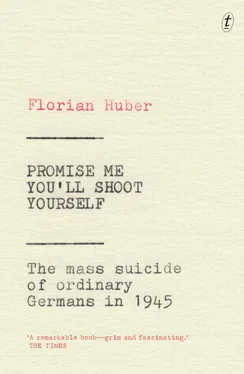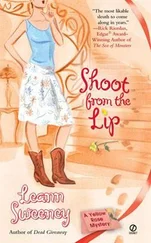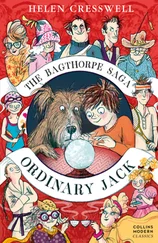• • •
In Demmin, meanwhile, there were tanks backed all the way up Baustrasse. Four Soviet officers and twenty soldiers billeted themselves in the vicarage, which was now the only inhabited house on the block. They belonged to a pioneer squad that was putting up a temporary bridge over the Peene. ‘Why they came to our house, when all the neighbouring houses were empty, I do not know. Nobody asked at the time,’ Maria Buske said. The vicar’s wife and her family had to clear the second floor, but were allowed to stay on in their house. Although the soldiers took Maria’s watch and wedding ring when they first searched the house, they were to prove more friend than foe in the hours that followed. Thanks to them, the vicarage escaped the brunt of the first attack.
A guard was posted in the hall to act as an intermediary. Fellow soldiers who came looking for women were sent packing with the words ‘officers’ quarters’. My father had a small quantity of tobacco over and gave him some in the long hours of his watch.
The battle noise had blown over like a minor storm front, rattling the windows of Demmin and smashing the occasional pane, but without bringing the devastation that people had feared. Many families emerged from their cellars and went back up to their flats. Some even dared hope that Demmin might, once again, escape unscathed. Ursula Strohschein had been scared rigid when she met the Russian soldier, but he had only given her a comforting pat and gone on his way. At the flat in Luisenstrasse, her family looked about in astonished disbelief, as if seeing the place for the first time.
My mother was crying for joy: ‘Thank the Lord! They’ve left us our flat…’ She kept running her hand lovingly over the upholstery. Cautiously, we peered out of the paneless window. Glass all over Luisenstrasse.
A menacing face stared up at them from under a black leather cap. Ursula’s mother shrank back from the window. The next thing they knew, the man was in their flat with two soldiers, charging around, shouting, looking for fascists. Over the desk hung a certificate belonging to Ursula’s father, honouring him as a member of Demmin’s historical marksmen’s guild. A militarist! The Russian refused to be calmed. After he’d left, they noticed palm-sized black circles on the outside of the doors, front and back. They had no idea what they signified, Ursula said, ‘but an uneasy sense of foreboding crept over us’.
• • •
Parallel to Luisenstrasse and connected to it by a series of alleyways was Frauenstrasse; here, next to the red-brick boys’ school and up from Swan Pond, lived the Schlössers, an extended family comprising grandparents and great-grandparents as well as a mother and her two sons. The boys’ father had gone off to fight at the beginning of the war; a few weeks before they had heard that he’d been killed in East Prussia in March. Ten-year-old Karl Schlösser was the elder son, and since his father had been away at war, more and more duties had fallen to him; he had been catapulted out of his sheltered, petty-bourgeois childhood into premature adulthood. He had to tend and slaughter the chickens, geese and rabbits in the garden. War had been part of everyday life for as long as he could remember. Now, though, that familiar world was falling apart: no father to come back to them, no lessons to attend. Karl had seen waves of refugees surging through Demmin and knew the Red Army soldiers were coming. He had grown up on Nazi propaganda—‘The Russians cut off children’s tongues!’—and was afraid. When the air-raid siren sounded that morning, he’d run down to the cellar. But the people around him spoke only of ‘collapse’, not of defeat—as if the ground had been pulled from under their feet, not as if they’d lost the war.
Once the gunfire was over, the Schlössers went back upstairs. From the window, Karl watched Soviet soldiers creeping along the walls of the houses, stooped, cautious and silent. As in every German town, the Russians anticipated ambush—a Hitler Youth boy with a bazooka, taking aim at them from a coalhole, or an SS squad hiding behind a window. There had been two gun battles. Now the Red Army’s advance troops were combing the houses one by one in search of any remaining German soldiers, kicking down door after door with their heavy boots.
No one had prepared Karl Schlösser for this moment. None of the grown-ups had any idea what was going to happen or what to do. The family took refuge in Karl’s parents’ bedroom at the back of the house, overlooking the garden. They sat there and waited—great-grandparents, grandparents, the two boys, their mother, an aunt. It was a bright afternoon and the overcrowded room was stuffy. When the Russians arrived, Karl was surprised. The two men who came into the bedroom where the family was gathered were ridiculously young. They looked nothing like the Bolshevik soldiers he’d imagined—the murderous arsonists, child abusers and rapists whose pictures he’d pieced together in his head from posters, newspapers and overheard conversations. In their mud-coloured uniforms, they looked more like schoolboys playing dressing-up. They stood there, clutching their weapons, at as much of a loss as the Schlössers. Nobody spoke; there was nothing to say and no common language to say it in. Those awkward moments of silence would stay with Karl Schlösser for the rest of his life.
This was partly because of what happened next: ‘One of them grabbed Mother and disappeared with her, while the other guarded the door with his rifle.’ The family sat there, powerless to move, while, in another room, the Soviet soldier threw himself on Magdalena Schlösser and raped her.
• • •
At Deven Farm, Marie Dabs stood at the attic window with a whole crowd of other refugees, watching Soviet soldiers storming towards them. They belonged to advance divisions that had crossed the Peene that afternoon without tanks or heavy guns, and were pushing ahead into the parts of Demmin that lay to the west of the river. Among them was a young man with a camouflage tarpaulin draped around his shoulders like a cape, and white ladies’ gloves on his hands. He explained to them in German that they needn’t be afraid of the Russian soldiers.
But come evening, they were ordered to evacuate. ‘The lovely big farm was empty,’ Marie Dabs said. ‘Not a cart in sight, no animals, no horses, no cows, no pigs, not so much as a chicken. Everything had been driven out or carried off by the Russians and Poles.’ Carrying their remaining belongings, Marie Dabs and her children set off, accompanied by Martha, their maid, but soldiers stopped them and ordered nineteen-year-old Nanni back into the farmhouse. Another soldier was waiting for her in the smoking room and locked the door on the inside, leaving Marie Dabs pleading and crying in the hall. Some high-ranking Soviet officers turned up and released the girl. Mother, daughter, son and maid ran off towards Deven Wood, but were caught by more soldiers before they got there.
Several Russians charged at us, grabbed Martha and disappeared with her behind a barn. They took my handbag and rummaged through it. They drank a big bottle of eau de Cologne, every last drop, and tossed Otto’s little medal, which I was keeping safe for him in my bag, over the field in a high arc.
The family broke away, Martha with them, and tore off into the thick of the woods, deeper and deeper into the dense undergrowth, until they were out of sight of the soldiers.
• • •
At the house of veterinary surgeon Dr Erich Kuhlmann, in Bahnhofstrasse, the morning of 30 April had begun much as usual. The fifty-two-year-old vet and his wife, Maria, had waited for the arrival of the Soviet soldiers along with their fifteen-year-old daughter, Ilse, their maid, Else, and some other residents of the building. Werner, Ilse’s older brother, was not with them. He was at the front and wouldn’t find out about what happened in his parents’ house that day until six months later, when the maid wrote to him in British captivity. In her letter, Else told him of their original plan to flee the Soviets and go to Hamburg, more than two hundred kilometres to the west. ‘But in the end your parents decided we should stay. They said things couldn’t possibly be as bad as people were saying.’
Читать дальше












